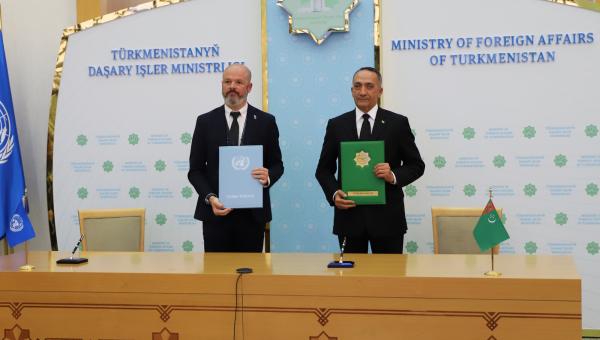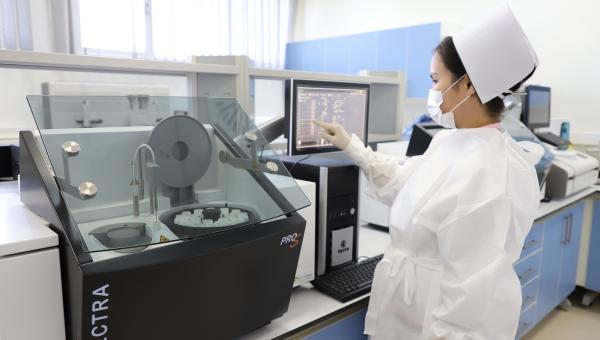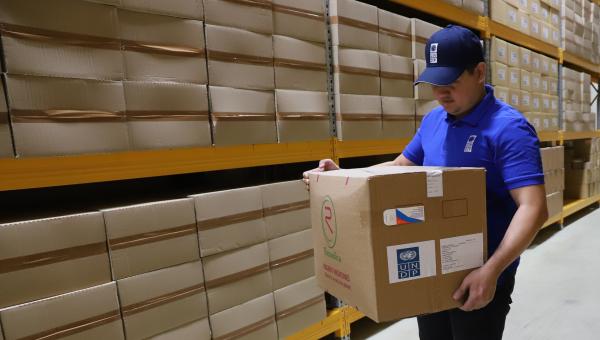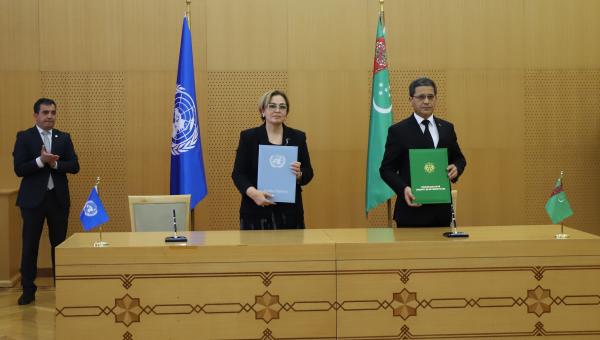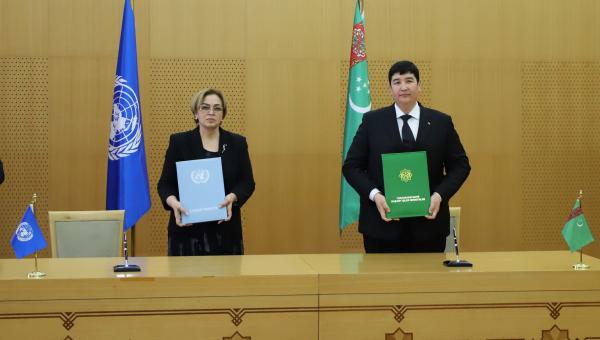TURKMENISTAN COVID-19 RESPONSE PROJECT (funded by the World Bank)
Project goals
The Objective of the project is to prevent, detect, and respond to the threat posed by COVID-19 and strengthen national systems for public health preparedness in Turkmenistan. The Objective will be achieved through three components as follows:
· Component 1 will aim to strengthen country-level coordination, risk communication and community outreach, early case detection, isolation and contact tracing, testing, and response capacities (activities which mostly fall within the responsibility of the Ministry of Health and Medical Industry of Turkmenistan (MoHMI) Division for Sanitary and Epidemiological Safety and Control. The sub-component 1.2 – Risk communication and community engagement will be implemented in partnership with UNCEF Turkmenistan.
· Component 2 will focus on strengthening infection prevention and control and case management practices in health facilities (activities which mostly fall within the responsibility of the MoHMI Division for Patient Care). Technical assistance and training for health care workers under this component will be implemented in partnership with the WHO country office in Turkmenistan.
· Component 3 will support the project management and monitoring and evaluation.
While the loan agreement is signed between the World Bank and the Government of Turkmenistan, project implementation will be supported by UNDP as follows:
• Provision of technical assistance to: (i) determine quantities and specifications for the procurement of medical equipment; and (ii) in collaboration with MoHMI, identification of eligible health facilities to receive the procured equipment as per agreed criteria;
• Procurement and distribution of medical equipment, medicine, and supplies;
• Procurement of technical assistance;
• Monitoring and evaluation, verification, and reporting; and
UNDP together with the MoHMI will be responsible for environmental and social management in accordance with the UNDP standards, rules and regulations and in line with the World Bank’s Environmental and Social Standards (ESSs) throughout the project. Material measures and actions, documents, or plans will be in line with the Environmental and Social Commitment Plan (ESCP). UNDP and the MoHMI will monitor and prepare reports on the progress and compliance with the completion of the material measures and actions throughout the implementation of the project.
Gender Equality and Women’s Empowerment
Analyse and report with the support of evidence concrete results achieved and/or unachieved towards gender equality and women’s empowerment during the year.
UNDP has been implementing the Stakeholder Engagement Plan (SEP) in accordance with the Calendar plan of SEP activities. The SEP was approved by the World Bank and MOHMI on 10 May 2022.
UNDP sent the final SEP in three languages to the MOHMI, Ministry of Finance and Economy and other stakeholders. To facilitate implementation of the SEP, UNDP has hired a national consultant. UNDP prepared a short visual aid about the World Bank project for distribution in the framework of SEP events.
SEP activities are aimed to involve various Stakeholder groups, consider Gender aspects, include NGO’s, Vulnerable groups, representatives of direct and indirect beneficiaries of the Project. During these activities, information about the project and its’ activities are being disclosed and the feedback of the stakeholders collected. Activities also included but were not limited to the representatives of the Women Union of Turkmenistan and other NGOs. Project encourages the participation of women to raise their informativeness and to receive their feedback and suggestions.
Project has developed two information booklets. One, describing the project “COVID-19 response in Turkmenistan”, funded by The World Bank. Another, specifically aimed to support the Gender equality on “Gender and Health” subject, to raise common gender issues in the healthcare sector. After receiving the approval from the national partners, it is planned to disseminate the booklets among the project stakeholders.
Among active participants were health care workers, and also representatives of the local municipalities, Women’s Union of Turkmenistan, Youth Organization, Red Crescent Society of Turkmenistan, Ministry of Health and Medical Industry, Ministry of Finance and Economy, Ministry of Internal affairs, State Customs Service, State Migration Service, Trade Union, representatives of private business and manufacturers, etc.
SEP activities are organized at national, velayat (regional), etrap (district) and community levels. MoHMI, UNDP, UNICEF and WHO are tasked with the implementation of SEP activities accordingly. A lecture on environmental and social aspects of development projects on the example of our ongoing “Response to COVID-19 in Turkmenistan” project was organized for the students of 3 universities. (Table 1)
Table 1. Implementation of the Stakeholder Engagement Plan (SEP), with the breakdown of participants groups by regions, as of December 31, 2022.
|
|
Ashgabat |
Akhal region |
Balkan region |
Dashoguz region |
Lebap region |
Mary region |
Total |
|
Women |
178 |
125 |
151 |
191 |
38 |
27 |
710 |
|
Men |
51 |
20 |
25 |
108 |
20 |
28 |
252 |
|
Including Youth organization |
25 |
20 |
38 |
75 |
5 |
1 |
164 |
|
Total |
229 |
145 |
176 |
299 |
58 |
55 |
962 |
As indicated in the table, twenty-eight events where the total number of participants was 962 out of which 710 (74.5%) were women and 252 (25.5%) men, including 164 (17.1%) members of Youth organization.
Strengthening the health care system
The project contributes to the joint efforts of implementing the “Preparedness and Response Plan of Turkmenistan to Acute Infectious Disease” (CPRP), which identifies joined preventive and response measures to combat COVID-19.

 Locations
Locations
